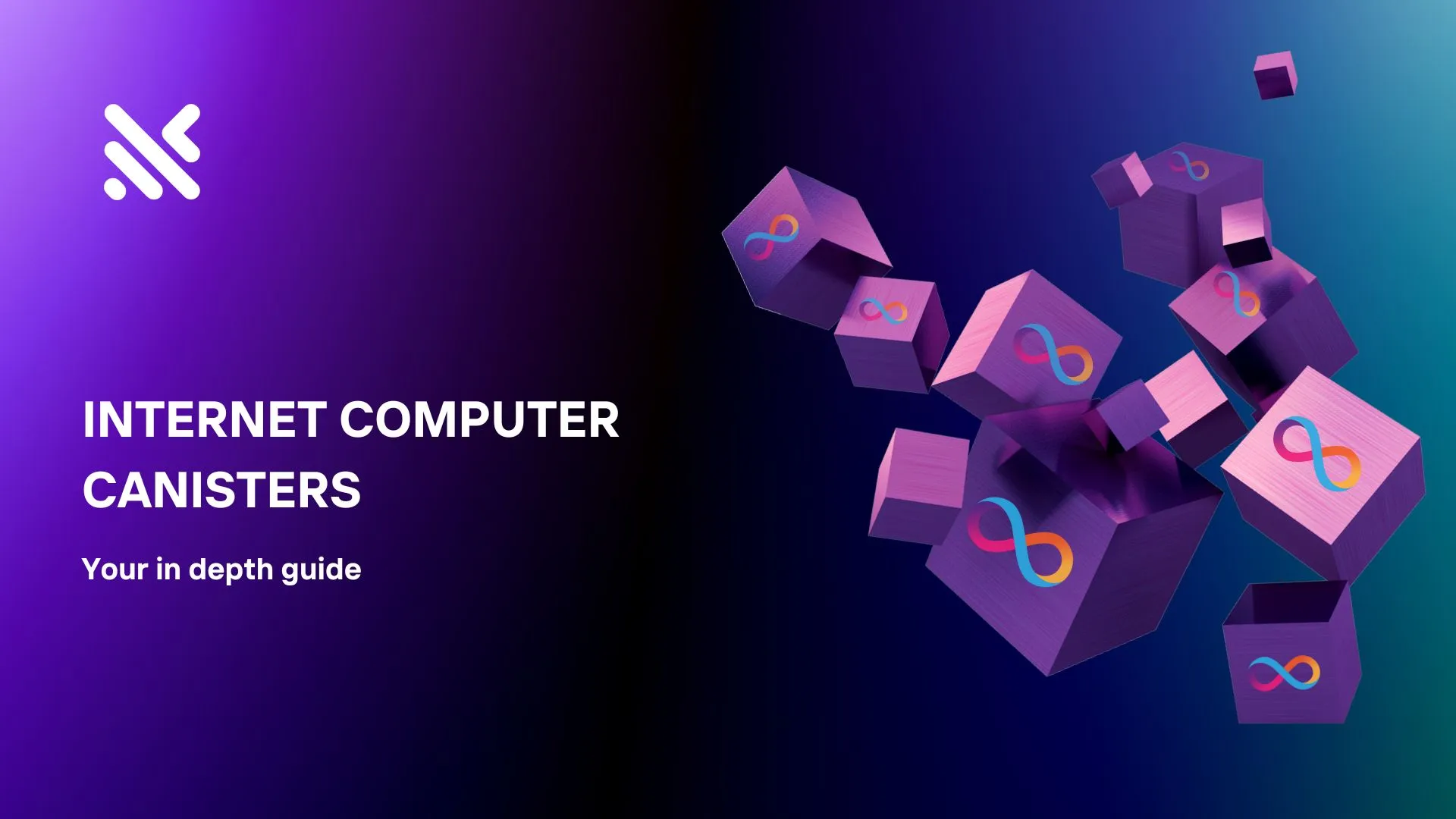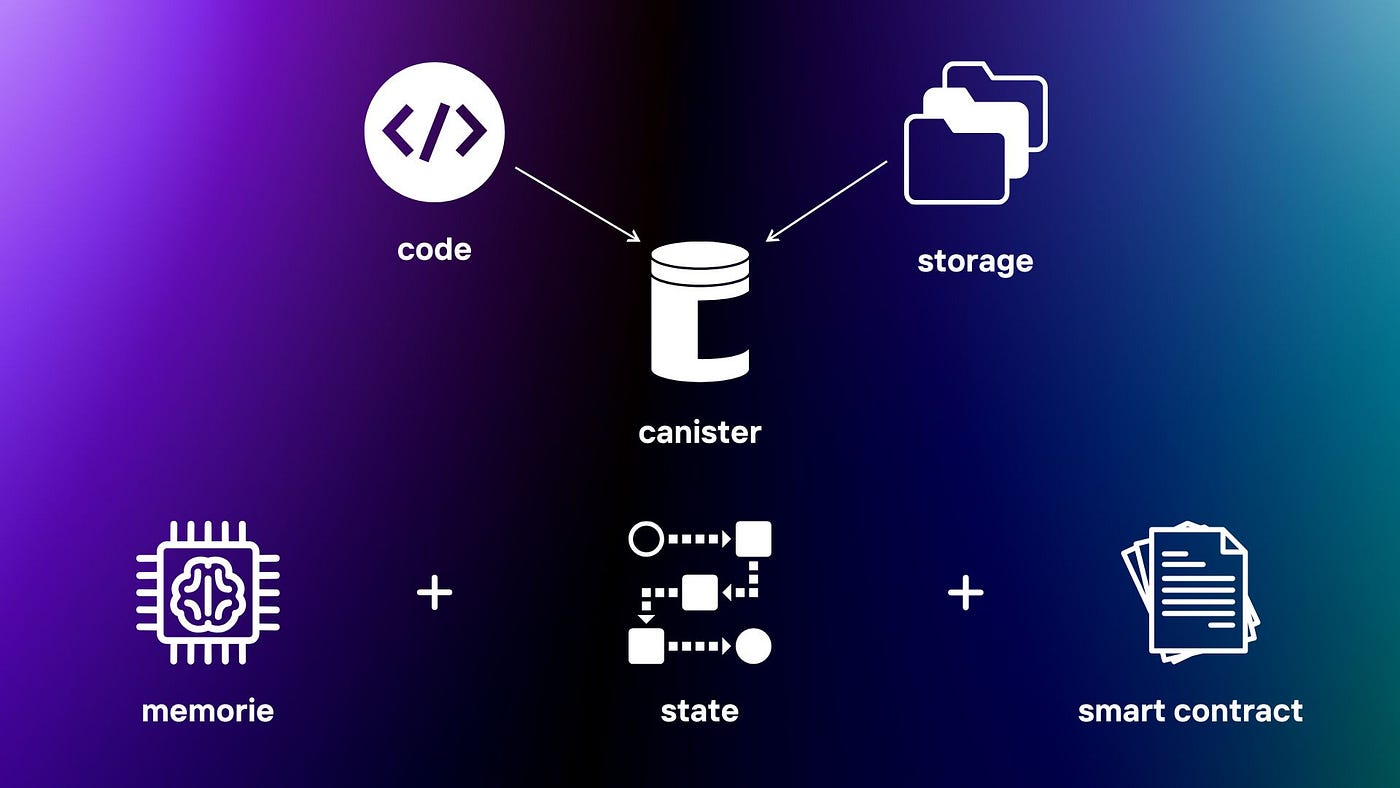
Understanding ICP Canisters: The Technology Behind Web3 Evolution
The Internet Computer (ICP) introduces a groundbreaking approach to smart contracts, known as canisters. While the term “smart contracts” is familiar, the nuances of how they work and how canisters expand their potential, are less well-known. This article delves into the core concepts of smart contracts and canisters, highlighting how they redefine decentralized application (dApp) development.
The Basics: Smart Contracts in Blockchain
A smart contract is a software program that executes agreements based on predefined conditions. Coined by Nick Szabo in the 1990s, the idea revolves around automating transactions securely and transparently without intermediaries.
Key Characteristics:
• Decentralization: Smart contracts exist on blockchain networks, with their integrity maintained by consensus mechanisms across nodes.
• Versatility: They can automate anything from simple financial transactions to complex systems like gaming rewards or even digital legal agreements.
• Immutability: Changes to a smart contract require network-wide validation, ensuring security and trust.
Smart contracts, however, rely on the same programming principles as traditional web applications, often with additional constraints due to blockchain environments.
Enter Canisters: ICP’s Enhanced Smart Contracts
On the Internet Computer, smart contracts are called canisters, an enhanced form of smart contracts that combine computation, data storage, and historical state tracking.
These canisters retain memory between interactions (orthogonal persistence), allowing developers to build sophisticated dApps without manual state management. They also have integrated data and code, as they bundle application logic, state, and dependencies into a single deployable unit. Canisters can handle HTTP requests and communicate with external systems, bridging Web2 and Web3 seamlessly, constituting its Web2 Interoperability.
In essence, a canister is more than a smart contract — it’s a self-contained computational unit capable of hosting full-fledged web applications on-chain.
The Role of WebAssembly in Canister Functionality
WebAssembly (Wasm) serves as the foundation for canister execution on the Internet Computer, acting as both a universal virtual machine and compiler. It empowers developers to build high-performance applications by delivering near-native execution speeds, which make it significantly faster than traditional interpreted blockchain environments.
Wasm also offers remarkable language flexibility, supporting development in Rust, Motoko, Python, and other languages that compile seamlessly to Wasm. Additionally, its cross-platform compatibility ensures consistent execution across web browsers and blockchain nodes alike. By integrating WebAssembly, canisters provide developers with the familiarity of traditional programming while unlocking advanced blockchain-specific functionalities.
Stable Memory: Solving the Upgrade Challenge
Stable memory is a groundbreaking feature of ICP canisters that addresses the challenges of preserving essential data during software upgrades. While orthogonal persistence simplifies state management by automatically maintaining application state, it complicates upgrades by retaining all historical data. Stable memory solves this problem by allowing developers to persist only selected data — such as user accounts or application settings — across upgrades.
This selective preservation avoids unnecessary overhead and enables seamless upgrades, as developers can replace application logic without losing critical information. With recent enhancements increasing canister memory capacity from 4GB to 52GB of stable memory, developers can now handle larger datasets and create more complex applications. Future plans aim to expand capacities to as much as 1TB, further enhancing scalability and supporting rapidly growing data needs.

How Canisters Redefine Web3 Development
Developing software on the Internet Computer closely resembles traditional Web2 workflows but introduces enhanced capabilities tailored for blockchain. Developers begin by writing application code in languages like Motoko or Rust, which is then compiled into WebAssembly (Wasm) modules. These compiled modules are deployed as canisters, self-contained units that bundle the application code and its dependencies. Once deployed, the applications run on ICP’s decentralized infrastructure, benefiting from features like orthogonal persistence and stable memory to ensure seamless updates without data loss.
This approach creates a blockchain-powered environment where developers can build decentralized applications (dApps) that rival Web2 platforms in both usability and scalability.
Real-World Use Cases for Canisters
The versatility of canisters unlocks a wide array of opportunities for decentralized innovation across various sectors. In decentralized finance (DeFi), canisters enable the development of intricate systems, such as lending protocols and decentralized exchanges, with unparalleled efficiency and scalability. For social media, they empower platforms where user data is securely stored and privacy is safeguarded, ensuring a trust-centric user experience.
In gaming, canisters facilitate the creation of immersive, fully on-chain game worlds that offer real-time interactivity and composability. Enterprise applications benefit from the integration of blockchain technology, enhancing operational transparency and security. Moreover, canisters make it possible to deploy machine learning models directly on the blockchain, enabling decentralized and tamper-proof AI solutions. This vast potential positions canisters as the cornerstone of next-generation decentralized applications.
The Canister Advantage
ICP’s canisters bring a new level of sophistication to blockchain development. With features like orthogonal persistence, stable memory, and Wasm integration, they empower developers to create scalable, high-performance applications that bridge Web2 and Web3.
As memory capacities grow and tools improve, the potential for innovation within the Internet Computer ecosystem continues to expand. Canisters not only enhance what smart contracts can do but redefine what blockchain technology can achieve.
Follow our latest updates on Medium and join the conversation on social media to stay ahead of the curve in the world of ICP.


